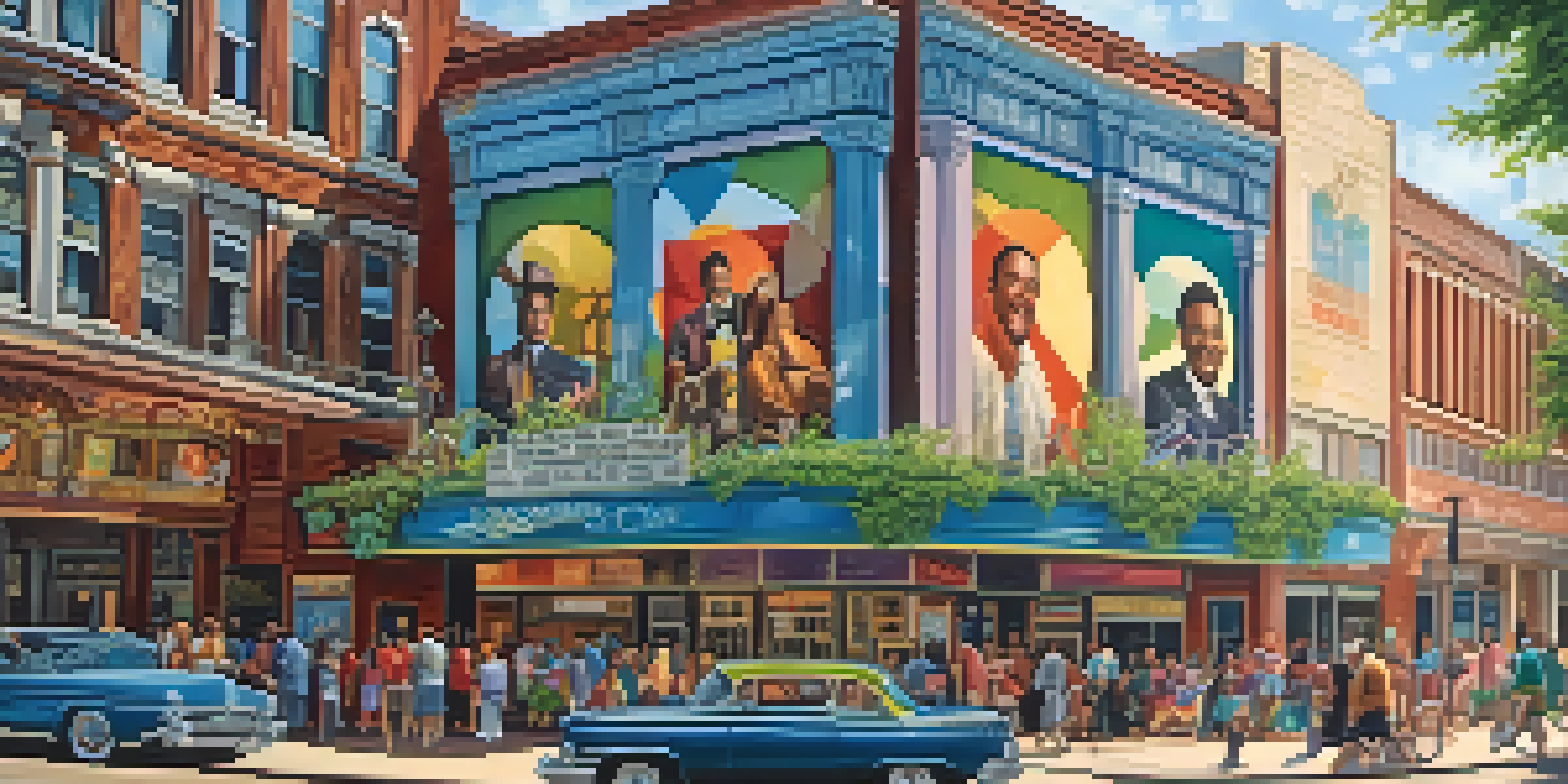Detroit Theaters: Pillars of Performance and Cultural Identity

An Overview of Detroit's Rich Theatrical Landscape
Detroit's theatrical scene is a vibrant tapestry woven from diverse cultures and histories. From the grand Fox Theatre to the intimate venues of smaller companies, each space has its own unique story to tell. These theaters not only showcase performances but also reflect the city's evolving identity over the years. They serve as gathering places where communities unite to celebrate their shared love for the arts.
Historical Foundations of Detroit Theaters
The roots of Detroit's theater culture can be traced back to the early 20th century, a time when vaudeville reignited public interest in live performance. The city's theaters became a stage for both national and local talent, contributing to the rich cultural landscape. Historic venues like the Michigan Theater and the Gem Theatre have stood the test of time, preserving the essence of theatrical artistry. They remind us of a time when live performance was a primary source of entertainment and community connection.
Detroit's Theaters: Cultural Pillars
Detroit's theaters serve as vital community hubs that reflect the city's rich cultural identity and history.
Iconic Venues: The Heart of Detroit's Arts Scene
Iconic venues like the Fox Theatre and the Detroit Opera House are not just buildings; they are landmarks of artistic expression. The Fox Theatre, often referred to as the 'Gem of Detroit,' hosts Broadway shows, concerts, and special events, drawing audiences from near and far. Meanwhile, the Detroit Opera House serves as a venue for opera, ballet, and other performances, showcasing the city's commitment to diverse artistic forms. Each theater plays a crucial role in maintaining Detroit's reputation as a hub for high-quality performances.
Community Theaters: Fostering Local Talent
Beyond the grand stages, community theaters are vital in nurturing local talent and providing opportunities for aspiring artists. These smaller venues often feature productions that reflect the interests and stories of the surrounding neighborhoods. Community theaters create a sense of belonging, allowing individuals to express their creativity and engage with the arts. They also play a significant role in making theater accessible to everyone, regardless of background or experience.
Local Talent Thrives in Community Theaters
Community theaters play an essential role in nurturing local talent and making the arts accessible to all.
The Role of Detroit Theaters During Cultural Movements
Throughout history, Detroit's theaters have been at the forefront of cultural movements, serving as platforms for social change and expression. During the civil rights movement, many performances addressed pressing social issues, sparking conversations that resonate to this day. The theater community often collaborates with activists and artists to create thought-provoking pieces that challenge the status quo. This legacy of advocacy showcases the power of performance art to influence society and inspire change.
The Impact of Technology on Detroit's Theatrical Scene
As technology continues to evolve, so does the landscape of theater in Detroit. Innovative techniques, such as digital projections and interactive performances, are changing how audiences experience live shows. Many theaters are now incorporating these technologies to enhance storytelling and create immersive environments. This blend of tradition and modernity keeps the art form fresh and relevant, appealing to a new generation of theatergoers.
Emerging Challenges and Innovations
Despite facing challenges from funding and competition, Detroit's theaters are adapting through innovation and technology.
Challenges Facing Detroit's Theaters Today
Despite their rich history, Detroit theaters face various challenges, including funding, competition from digital entertainment, and the impact of global events. Many rely on community support and sponsorships to stay afloat, highlighting the importance of local engagement. The pandemic has also forced theaters to adapt, with many exploring virtual performances as a solution. These challenges present an opportunity for innovation and resilience, showcasing the theater community's dedication to survival.
The Future of Detroit Theaters: A Bright Horizon
The future of Detroit's theaters looks promising, with a renewed interest in live performances and community engagement. As audiences return, the focus on inclusivity and diverse storytelling is becoming more prominent. New initiatives are emerging to support local artists and empower underrepresented voices, ensuring that the city's theatrical heritage continues to thrive. With a strong foundation and a passion for the arts, Detroit's theaters are set to remain pillars of performance and cultural identity for years to come.